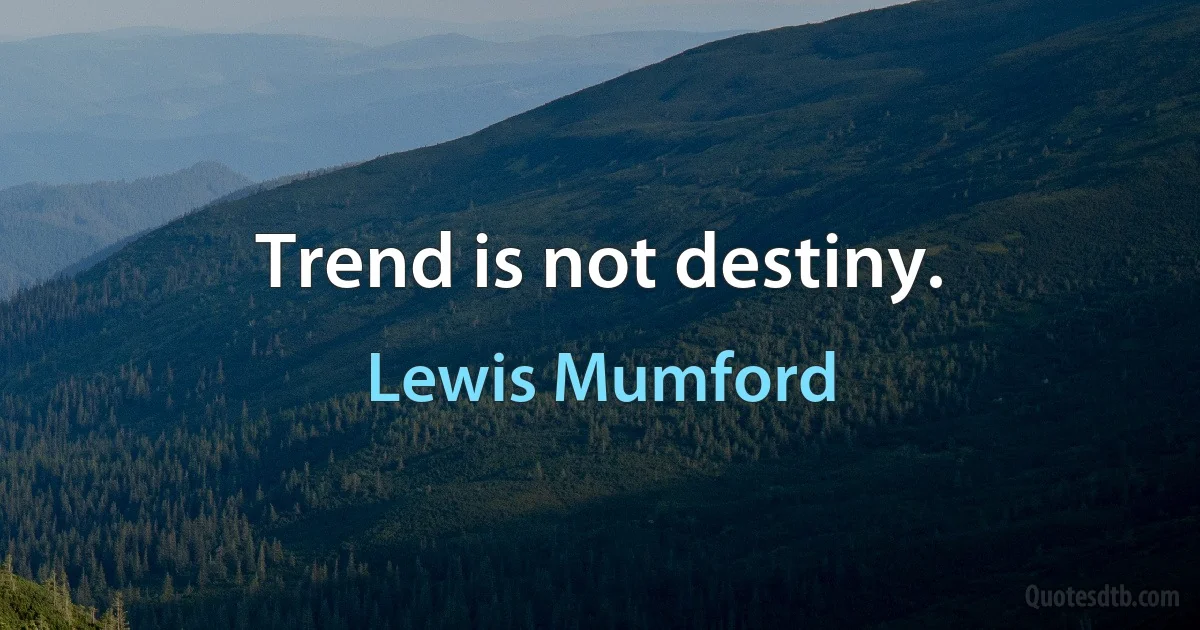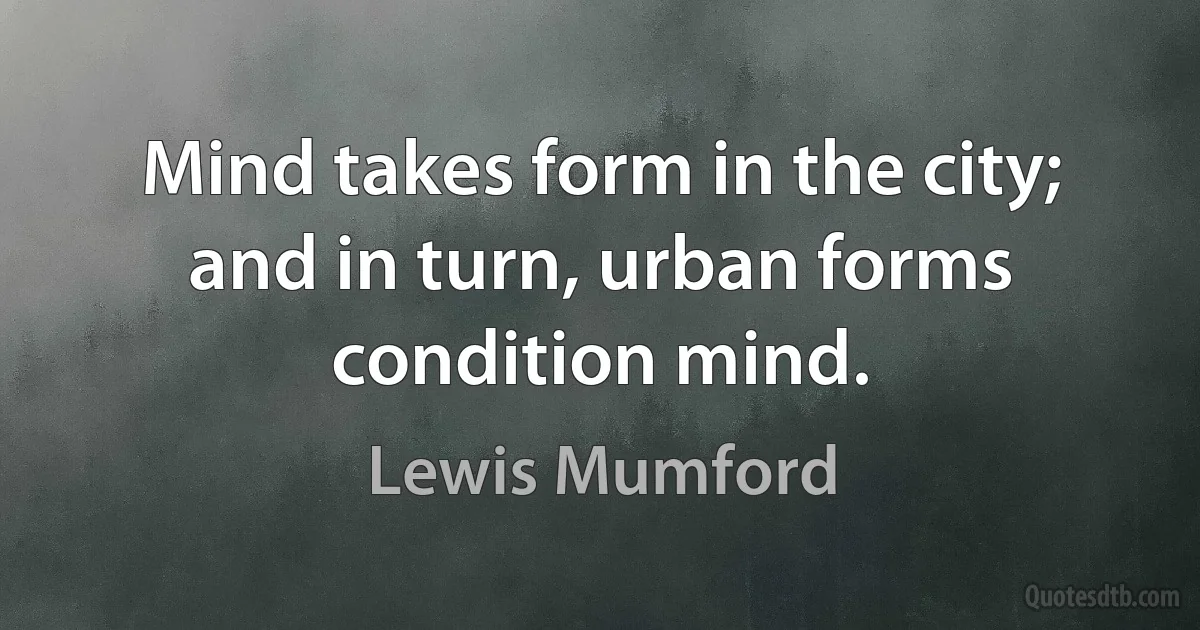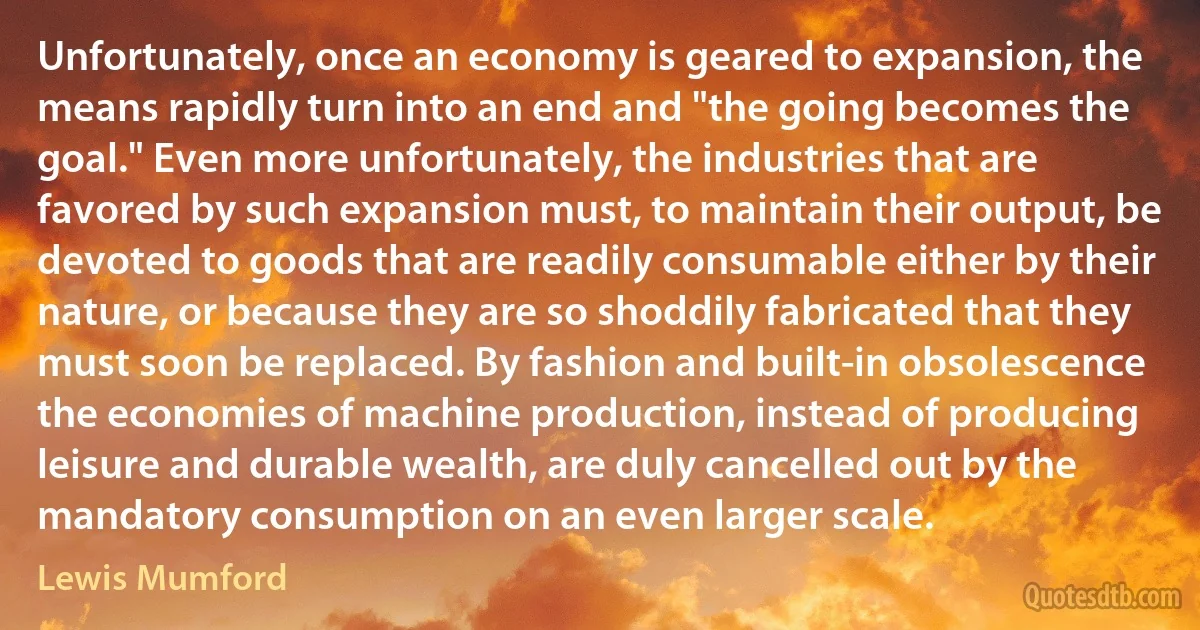Lewis Mumford quotes - page 4
If we are to create balanced human beings, capable of entering into world-wide co-operation with all other men of good will - and that is the supreme task of our generation, and the foundation of all its other potential achievements - we must give as much weight to the arousal of the emotions and to the expression of moral and esthetic values as we now give to science, to invention, to practical organization. One without the other is impotent.

Lewis Mumford
Instead of clinging to the sardonic funeral towers of metropolitan finance, ours to march out to newly plowed fields, to create fresh patterns of political action, to alter for human purposes the perverse mechanisms or our economic regime, to conceive and to germinate fresh forms of human culture.

Lewis Mumford
Each religion is a brave guess at the authorship of Hamlet. Yet, as far as the play goes does it make any difference whether Shakespeare or Bacon wrote it? Would it make any difference to the actors if their parts happened out of nothingness, if they found themselves acting on the stage because of some gross and unpardonable accident? Would it make any difference if the playwright gave them the lines or whether they composed them themselves, so long as the lines were properly spoken? Would it make any difference to the characters if A Midsummer Night's Dream was really a dream?

Lewis Mumford



